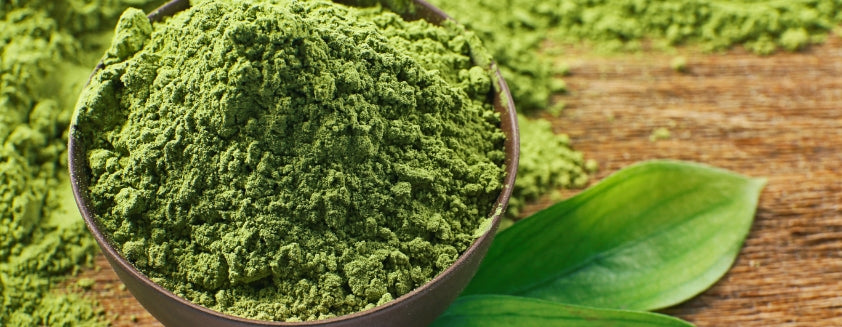The Core Pillars of Health
Generations of deep scientific research has unequivocally contended that cornerstones of good health can be condensed into the following crucial pillars - Good Nutrition, Mental & Emotional Wellbeing, Sleep and Exercise. They keep our bodies functioning at optimal physical performance, and ensure peak mood and mental health.
Nutrition
Mental & Emotional Wellbeing
Sleep
Physical Activity


Restful sleep
The importance of good sleep cannot be understated. The inability to sleep well on a regular basis often leads to deterioration of social and occupational functions. Hence, consumption of natural sleep inducing supplements in the form of mists and sprays, along with good sleeping patterns and relaxation therapies, can significantly affect sleep wellness.
Intra-oral dosage forms are more preferred and evolved as an alternative to conventional administration methods using tablets and capsules. Difficulty in swallowing tablets and/or capsules as well as them passing through the intestinal tract are a few concerns associated with oral administration.

Scientists recommend that getting 7+ hours of sleep every night is a crucial pillar of good health and immunity. Falling asleep at the same time every night creates a healthy sleep cycle.

Mayo Clinic states that the quality of sleep is just as important as the quantity. If your sleep is frequently interrupted, you're not getting quality sleep.

Your daily routines – what you eat and drink, how you schedule your days and how you choose to spend your evenings – can significantly impact your quality of sleep.

Fun Fact
Did you know that sleep-deprived people tend to eat more junk food? This is because lack of sleep disrupts the hormones that regulate hunger, causing you to crave high-calorie, sugary foods.
Sources:
- Antonella Natalia Bartoli, Simona De Gregori, Mariadelfina Molinaro, Monica Broglia1, Carmine Tinelli and Roberto Imberti: Bioavailability of a New Oral Spray Melatonin.
- Emulsion Compared with a Standard Oral Formulation in Healthy Volunteers. Journal of Bioequivalence & Bioavailability, 2012,4,7.
The science behind sublingual sprays:
Melatonin sublingual spray formulation delivers melatonin in droplets which promotes its absorption through the lingual epithelium to circulation and avoids the loss of melatonin through first liver passage. Studies prove significantly higher bioavailability of melatonin in blood circulation in spray method compared to tablets administration, and prevents rapid clearance through the system.
Research also shows that the amount of melatonin absorbed in the mouth (sublingual) was found significantly greater in circulation than standard oral tablets. Additionally, sublingual mode of melatonin administration reported improved sleeping patterns and circadian rhythm (biological rhythm which oscillates in 24 hours cycles). Oral sprays have a high absorption rate without any requirement of water. Among other formats, oral sprays are preferred in alleviating sleep disorders due to its fast action, effectiveness, and comfortable mode of administration.
Better dreams with deep slumber

Melatonin
Contains
N-acetyl-5-methoxytryptamine
Benefits
- Also known as the ‘sleep hormone’.
- Is secreted by the brain’s pineal gland and is essential for regulating the circadian rhythm (body’s internal clock).
- Role as a natural remedy for people having sleep troubles. Researchers have found melatonin as a safe supplement without inducing any side effects whether applied for short term or long-term treatment regimes.
- Significantly improves sleep pattern, and sleep onset latency.
- Demonstrated to reduce the start time of sleep and improve overall sleep quality.
- Demonstrated to have a positive impact on cognitive function and sleep disorders.
- Helps in improving blood sugar levels, digestive functions, and mental health.
Source
- Escames, G., López, A., García, J. A., García, L., Acuña-Castroviejo, D., García, J. J., & López, L. C. (2010). The role of mitochondria in brain aging and the effects of melatonin. Current neuropharmacology, 8(3), 182–193. The Role of Mitochondria in Brain Aging and the Effects of Melatonin by Germaine Escames, Ana Lopez, Jose Antonio Garcia, Laura Garcia, Dario Acuna-Castroviejo, Jose Joaquin Garcia and Luis Carlos Lopez
- Karasek M. Melatonin, human aging, and age-related diseases. Exp Gerontol. 2004 Nov-Dec;39(11-12):1723-9.
- Ferracioli-Oda, E., Qawasmi, A., & Bloch, M. H. (2013). Meta-analysis: melatonin for the treatment of primary sleep disorders. PloS one, 8(5), e63773.

Valerian
Contains
Bioactive components such as essential oils (Valerenic Acid and Valenol), Valepotriates, Alkaloids (Valerianine, and Valerine)
Benefits
- Considered as “nature’s Valium” herb.
- Promotes sleep and relaxation by increasing levels of neurotransmitters, gamma aminobutyric acid (GABA).
- Valerenic acid rich valerian roots prevent GABA breakdown in the brain, which results in calmness and tranquillity.
- Reduces the time it takes to fall asleep, improves sleep quality and sleep duration.
Source
- Trauner G, Khom S, Baburin I, Benedek B, Hering S, Kopp B. Modulation of GABAA receptors by valerian extracts is related to the content of valerenic acid. Planta Med. 2008 Jan;74(1):19-24.
- Gottesmann C. GABA mechanisms and sleep. Neuroscience. 2002;111(2):231-9. doi: 10.1016/s0306-4522(02)00034-9.
- Houghton PJ. The scientific basis for the reputed activity of Valerian. J Pharm Pharmacol. 1999 May;51(5):505-12.
- Benke D, Barberis A, Kopp S, Altmann KH, Schubiger M, Vogt KE, Rudolph U, Möhler H. GABA A receptors as in vivo substrate for the anxiolytic action of valerenic acid, a major constituent of valerian root extracts. Neuropharmacology. 2009 Jan;56(1):174-81. doi: 10.1016/j.neuropharm.2008.06.013.
- Francis AJ, Dempster RJ. Effect of valerian, Valeriana edulis, on sleep difficulties in children with intellectual deficits: randomised trial. Phytomedicine. 2002 May;9(4):273-9.

L-Tryptophan
Contains
Naturally Occurring Amino Acid
Benefits
- Provides numerous health benefits which come from the increased niacin and serotonin concentration.
- Increases stage 4 sleep (deep sleep).
- Serves as a precursor for formation of several bioactive metabolites such as serotonin, melatonin, and the vitamin niacin which regulate mood and sleep.
- Promotes better-quality sleep, gives relief from anxiety and depression, helps with management of pain tolerance, increases emotional well-being.
- Role in modulation of depression and sleep outcomes without affecting the liver and kidney functions.
- Improves sleep efficiency and sleep time.
Source
- Xie Z, Chen F, Li WA, Geng X, Li C, Meng X, Feng Y, Liu W, Yu F. A review of sleep disorders and melatonin. Neurol Res. 2017 Jun;39(6):559-565.
- What Is Tryptophan? by Grant Tinsley, Ph.D., CSCS,*D, CISSN, Nutrition — By Ana Gotter

L- Theanine
Contains
Naturally Occurring Amino Acid
Benefits
- Provides numerous health benefits in terms of mood improvement, cognitive enhancement, promoting relaxation, easing stress and improving brain and heart health without causing any side effects.
- Able to cross the blood brain barrier and affect the brain by increasing levels of certain neurotransmitters such as serotonin, dopamine, GABA for modulation of anxiety, pleasure and attention.
- Helps in lowering the production of stress hormone ‘cortisol’.
- Improves overall sleep quality by reducing the duration of fall asleep and regulating the levels of serotonin and dopamine level in the body.
- Helps in curbing anxiety/stress, improving cognitive function, and boosting immunity.
- It has neuroprotective effects and helps increase focus and attention, reduces fatigue, improves brain function and mental health.
Source
- Williams, Jackson; Kellett, Jane; Roach, Paul D.; McKune, Andrew; Mellor, Duane; Thomas, Jackson; Naumovski, Nenad. 2016. 'l-Theanine as a Functional Food Additive: Its Role in Disease Prevention and Health Promotion' Beverages 2, no. 2: 13. l-Theanine as a Functional Food Additive: Its Role in Disease Prevention and Health Promotion by Jackson Williams, Jane Kellett, Paul Daniel Roach, Andrew McKune, Duane Mellor, Jackson Thomas and Nenad Naumovski
- Nobre AC, Rao A, Owen GN. L-theanine, a natural constituent in tea, and its effect on mental state. Asia Pac J Clin Nutr. 2008;17 Suppl 1:167-8. PMID: 18296328.

Oranges & Yellows
Papaya
Plant Phytonutrients
Alpha and Beta-Ccarotene, Crypto-Xxanthin-β and Lutein-Zzeaxanthine, Zinc, Selenium,Phosphorous.
Benefits
- Carrot, Drugs and Lactation Database (LactMed) (Internet), National Library of Medicine (US), Bethesda, MD, USA, 2006.
- H. Chen, F. Shao, F. Zhang, and Q. Miao, “Association between dietary carrot intake and breast cancer,” Medicine, vol. 97, no. 37, p. e12164, 2018.
- X. Xu, Y. Cheng, S. Li et al., “Dietary carrot consumption and the risk of prostate cancer,” European Journal of Nutrition, vol. 53, no. 8, pp. 1615–1623, 2014.
- Lund, E.D. and White, J.M. (1990) Polyacetylenes in Normal and Water stressed “Orlando Gold” Carrots (Daucus carota). Journal of the Science of Food and Agriculture, 51, 507-516.
Source
- Carrot, Drugs and Lactation Database (LactMed) (Internet), National Library of Medicine (US), Bethesda, MD, USA, 2006.
- H. Chen, F. Shao, F. Zhang, and Q. Miao, “Association between dietary carrot intake and breast cancer,” Medicine, vol. 97, no. 37, p. e12164, 2018.
- X. Xu, Y. Cheng, S. Li et al., “Dietary carrot consumption and the risk of prostate cancer,” European Journal of Nutrition, vol. 53, no. 8, pp. 1615–1623, 2014.
- Lund, E.D. and White, J.M. (1990) Polyacetylenes in Normal and Water stressed “Orlando Gold” Carrots (Daucus carota). Journal of the Science of Food and Agriculture, 51, 507-516.

Oranges & Yellows
Pumpkin
Plant Phytonutrients
Alpha and Beta-Ccarotene, Crypto-Xxanthin-β and Lutein-Zzeaxanthine, Zinc, Selenium,Phosphorous.
Benefits
- Carrot, Drugs and Lactation Database (LactMed) (Internet), National Library of Medicine (US), Bethesda, MD, USA, 2006.
- H. Chen, F. Shao, F. Zhang, and Q. Miao, “Association between dietary carrot intake and breast cancer,” Medicine, vol. 97, no. 37, p. e12164, 2018.
- X. Xu, Y. Cheng, S. Li et al., “Dietary carrot consumption and the risk of prostate cancer,” European Journal of Nutrition, vol. 53, no. 8, pp. 1615–1623, 2014.
- Lund, E.D. and White, J.M. (1990) Polyacetylenes in Normal and Water stressed “Orlando Gold” Carrots (Daucus carota). Journal of the Science of Food and Agriculture, 51, 507-516.
Source
- Carrot, Drugs and Lactation Database (LactMed) (Internet), National Library of Medicine (US), Bethesda, MD, USA, 2006.
- H. Chen, F. Shao, F. Zhang, and Q. Miao, “Association between dietary carrot intake and breast cancer,” Medicine, vol. 97, no. 37, p. e12164, 2018.
- X. Xu, Y. Cheng, S. Li et al., “Dietary carrot consumption and the risk of prostate cancer,” European Journal of Nutrition, vol. 53, no. 8, pp. 1615–1623, 2014.
- Lund, E.D. and White, J.M. (1990) Polyacetylenes in Normal and Water stressed “Orlando Gold” Carrots (Daucus carota). Journal of the Science of Food and Agriculture, 51, 507-516.

Oranges & Yellows
Curcumin
Plant Phytonutrients
Alpha and Beta-Ccarotene, Crypto-Xxanthin-β and Lutein-Zzeaxanthine, Zinc, Selenium,Phosphorous.
Benefits
- Carrot, Drugs and Lactation Database (LactMed) (Internet), National Library of Medicine (US), Bethesda, MD, USA, 2006.
- H. Chen, F. Shao, F. Zhang, and Q. Miao, “Association between dietary carrot intake and breast cancer,” Medicine, vol. 97, no. 37, p. e12164, 2018.
- X. Xu, Y. Cheng, S. Li et al., “Dietary carrot consumption and the risk of prostate cancer,” European Journal of Nutrition, vol. 53, no. 8, pp. 1615–1623, 2014.
- Lund, E.D. and White, J.M. (1990) Polyacetylenes in Normal and Water stressed “Orlando Gold” Carrots (Daucus carota). Journal of the Science of Food and Agriculture, 51, 507-516.
Source
- Carrot, Drugs and Lactation Database (LactMed) (Internet), National Library of Medicine (US), Bethesda, MD, USA, 2006.
- H. Chen, F. Shao, F. Zhang, and Q. Miao, “Association between dietary carrot intake and breast cancer,” Medicine, vol. 97, no. 37, p. e12164, 2018.
- X. Xu, Y. Cheng, S. Li et al., “Dietary carrot consumption and the risk of prostate cancer,” European Journal of Nutrition, vol. 53, no. 8, pp. 1615–1623, 2014.
- Lund, E.D. and White, J.M. (1990) Polyacetylenes in Normal and Water stressed “Orlando Gold” Carrots (Daucus carota). Journal of the Science of Food and Agriculture, 51, 507-516.








